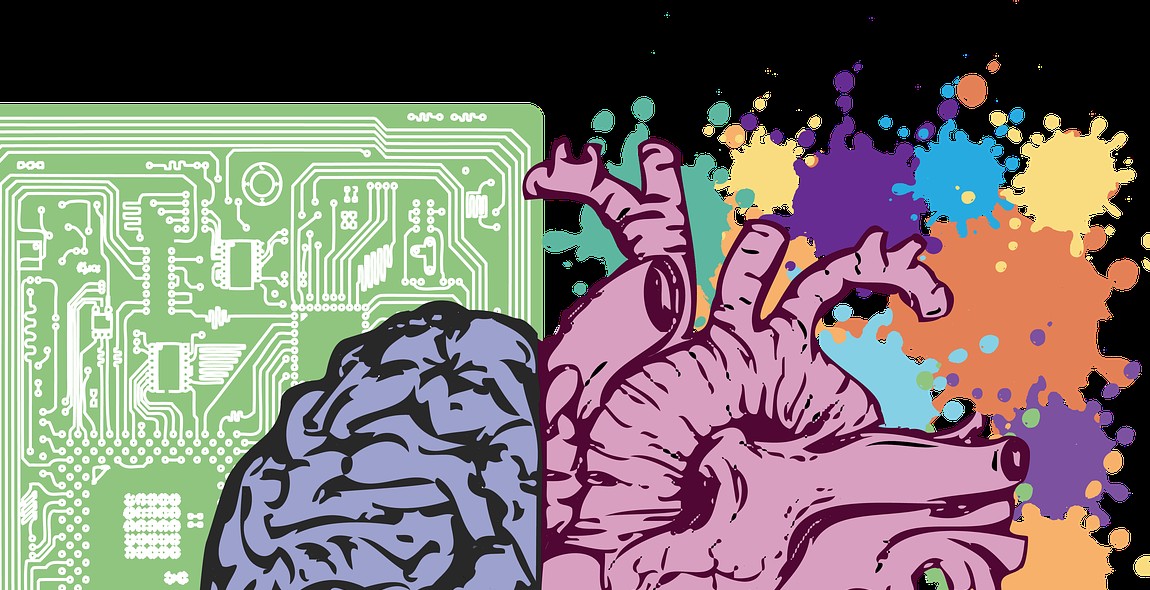Emotional Intelligence in Love: Key to a Successful Relationship
Love is a beautiful feeling that can bring joy and happiness into our lives. However, relationships can be complicated and challenging, and they require effort and commitment to maintain. Emotional intelligence is a crucial factor in building a successful relationship that lasts.
What is Emotional Intelligence?
Emotional intelligence refers to the ability to recognize, understand, and manage our own emotions and those of others. It involves empathy, self-awareness, self-regulation, motivation, and social skills. Emotional intelligence is essential in all areas of life, including love and relationships.
Why is Emotional Intelligence Important in Love?
When it comes to love, emotional intelligence is essential because it enables us to communicate effectively, resolve conflicts, and build a strong emotional connection with our partner. Emotional intelligence allows us to understand and express our own emotions and to empathize with our partner’s feelings. It helps us to be more compassionate, patient, and supportive, which are all crucial qualities in a successful relationship.
In this article, I will discuss the importance of emotional intelligence in love and provide tips on how to improve your emotional intelligence skills to build a healthier and more fulfilling relationship.

What is Emotional Intelligence?
Emotional Intelligence (EI) is the ability to recognize, understand, and manage one’s own emotions, as well as the emotions of others. It is the capacity to perceive, express, and regulate emotions in oneself and others.
According to psychologist Daniel Goleman, EI is comprised of four key components: self-awareness, self-management, social awareness, and relationship management.
Defining Emotional Intelligence
Self-awareness is the ability to recognize and understand one’s own emotions and their impact on behavior and relationships. It involves being able to accurately identify and label one’s own emotions, as well as recognizing how emotions affect thoughts and actions.
Self-management is the ability to regulate one’s own emotions and behavior in a healthy and constructive way. This includes managing stress, controlling impulses, and adapting to changing circumstances.
Social awareness is the ability to recognize and understand the emotions of others, and to empathize with them. It involves being able to read social cues and understand the perspectives of others, even if they are different from one’s own.
Relationship management is the ability to communicate effectively with others, build and maintain positive relationships, and resolve conflicts in a constructive way. It involves being able to work collaboratively with others, show empathy and support, and manage emotions in a way that promotes positive outcomes for everyone involved.
Why is Emotional Intelligence Important in Relationships?
Emotional intelligence is essential for building and maintaining healthy relationships. When partners have high EI, they are better able to communicate effectively, resolve conflicts, and support each other through difficult times. They are also more likely to show empathy, understanding, and compassion towards one another.
On the other hand, when partners lack emotional intelligence, they may struggle to communicate effectively and manage their own emotions and behaviors. This can lead to misunderstandings, conflicts, and even the breakdown of the relationship.
Research has shown that couples with high levels of emotional intelligence are more likely to have successful and satisfying relationships. They are better able to handle challenges and stressors, and are more resilient in the face of adversity.
Overall, emotional intelligence is a crucial component of a successful relationship. By developing and strengthening our emotional intelligence skills, we can cultivate healthier, more fulfilling relationships with our partners.
How to Develop Emotional Intelligence in Love
Emotional intelligence is the ability to recognize, understand, and manage your emotions and the emotions of others. It plays a crucial role in developing and maintaining a healthy and successful relationship. Here are some practical steps you can take to improve your emotional intelligence in love:
Recognize and Understand Your Emotions
The first step in developing emotional intelligence is to recognize and understand your own emotions. Pay attention to how you feel and why you feel that way. Reflect on past experiences and identify how certain events made you feel. This self-awareness will help you to communicate your emotions more effectively and manage them in a healthy way.
Communicate Effectively
Effective communication is key to developing emotional intelligence. Be open and honest about your feelings, and listen actively to your partner’s emotions. Use “I” statements to express how you feel, and avoid blaming or accusing language. When conflicts arise, take a break if necessary and come back to the conversation when you are both calm and ready to listen.
Practice Empathy
Empathy is the ability to understand and share the feelings of another person. It is a crucial aspect of emotional intelligence in love. Put yourself in your partner’s shoes and try to see things from their perspective. Validate their emotions and show them that you understand how they feel. This will help to build trust and strengthen your bond.
Manage Your Emotions
Managing your emotions is an important part of emotional intelligence. Learn to recognize when you are feeling overwhelmed or stressed, and take steps to manage those emotions in a healthy way. This might include taking a break, practicing mindfulness or meditation, or seeking support from a therapist or counselor.
Be Open to Feedback
Finally, be open to feedback from your partner. Ask them how they feel and what you can do to improve your emotional intelligence in the relationship. Be willing to listen to their suggestions and take action to make positive changes.
Developing emotional intelligence takes time and practice, but it is well worth the effort. By improving your ability to recognize and manage your emotions, communicate effectively, practice empathy, and be open to feedback, you can build a stronger and more fulfilling relationship.

Emotional Intelligence in Action
Emotional intelligence is not just a theoretical concept, but rather a practical tool that can be utilized to improve relationships. Here are some ways in which emotional intelligence can be put into action in a relationship:
Conflict Resolution
When conflicts arise in a relationship, it is important to approach them with emotional intelligence. This means being aware of your own emotions and reactions, as well as those of your partner. It also means being able to communicate effectively, listen actively, and empathize with your partner’s perspective.
One effective way to practice emotional intelligence during conflict resolution is to use “I” statements instead of “you” statements. For example, instead of saying “You always do this,” try saying “I feel upset when this happens.” This approach allows you to express your emotions without putting your partner on the defensive.
Building Trust
Trust is a crucial component of any successful relationship, and emotional intelligence can help to build and maintain it. Trust is built through consistent communication, honesty, and vulnerability.
Emotional intelligence allows you to recognize and manage your own emotions, which in turn can help you to be more open and honest with your partner. It also allows you to recognize and respond to your partner’s emotions, which can help to build empathy and understanding.
Maintaining Intimacy
Intimacy is not just about physical closeness, but also emotional closeness. Emotional intelligence can help to maintain intimacy in a relationship by promoting communication and vulnerability.
One way to maintain emotional intimacy is to regularly check in with your partner about their emotional state. This can be as simple as asking “How are you feeling today?” or “Is there anything on your mind that you’d like to talk about?” This approach allows both partners to feel heard and supported, which can strengthen the emotional bond between them.
| Emotional Intelligence in Action | Examples |
|---|---|
| Conflict Resolution | Using “I” statements, active listening, empathy |
| Building Trust | Consistent communication, honesty, vulnerability |
| Maintaining Intimacy | Checking in regularly, promoting emotional closeness |
- When conflicts arise, approach them with emotional intelligence
- Trust is built through consistent communication, honesty, and vulnerability
- Maintain emotional intimacy by regularly checking in with your partner
Conclusion
Emotional intelligence is a crucial factor in building and maintaining a successful and fulfilling relationship. It allows individuals to communicate effectively, understand and manage their own emotions, and empathize with their partner. Couples who possess high emotional intelligence are better equipped to handle conflicts and build trust and intimacy in their relationship.
Developing emotional intelligence is a lifelong process that requires self-reflection, self-awareness, and a willingness to learn and grow. It involves recognizing and managing our own emotions while also being attuned to our partner’s feelings and needs. By cultivating emotional intelligence, individuals can create a strong foundation for a healthy and loving relationship.
Key Takeaways
- Emotional intelligence involves the ability to recognize, understand, and manage our own emotions and the emotions of others.
- Emotional intelligence is essential for building and maintaining successful relationships.
- Couples who possess high emotional intelligence are better equipped to handle conflicts and build trust and intimacy in their relationship.
- Developing emotional intelligence requires self-reflection, self-awareness, and a willingness to learn and grow.
Remember:
| DO | DON’T |
|---|---|
|
|
Remember, emotional intelligence is not something that can be developed overnight. It takes time, effort, and practice. But by prioritizing emotional intelligence in your relationship, you can create a strong foundation for a healthy and fulfilling partnership.
